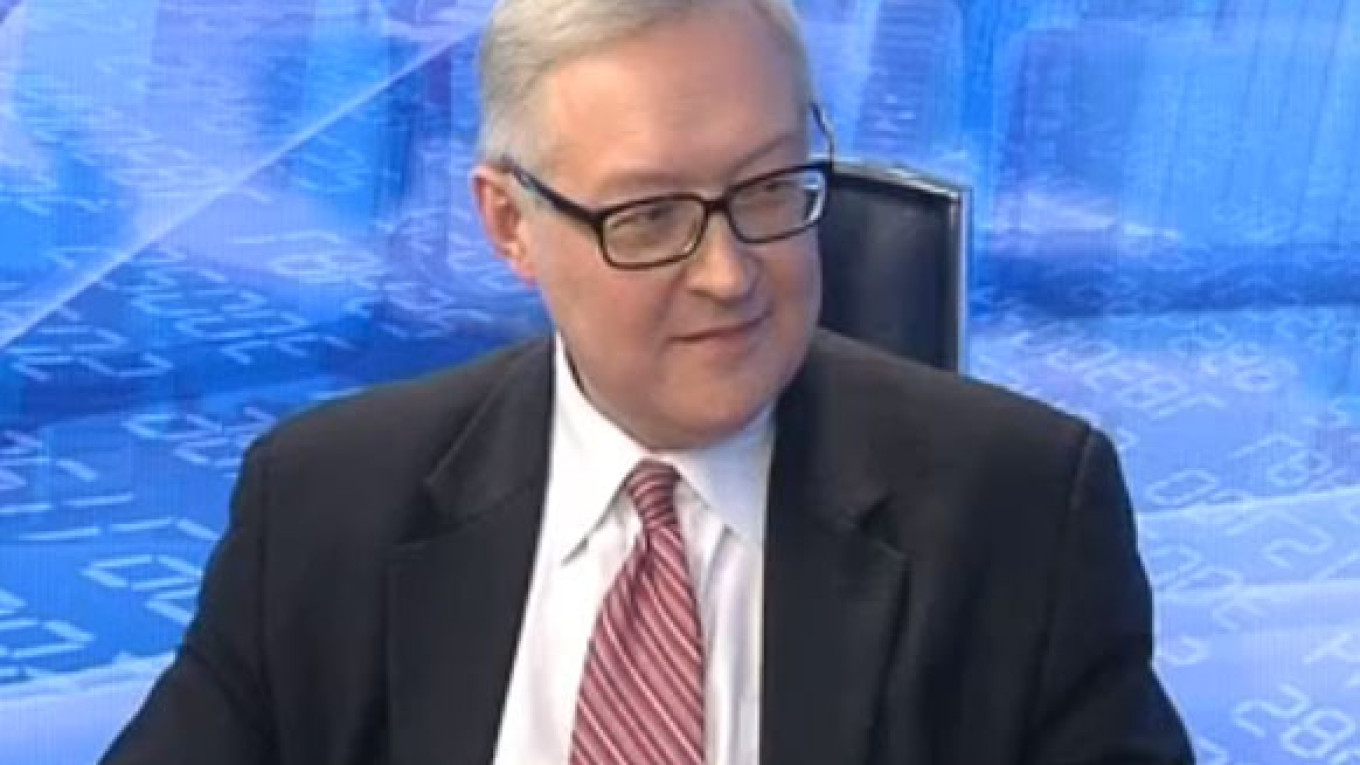Deputy Foreign Minister Sergei Ryabkov said Friday that Russia disagreed with the other Group of 8 countries on the issue of protecting the rights of sexual minorities.
Ryabkov said Russia disagrees with the notion of sexual minorities' having separate rights because there are not different laws for people of different sexual orientations in international law, Interfax reported. He said Foreign Minister Sergei Lavrov expressed this view at a meeting of G8 foreign ministers in Washington this week.
The G8 consists of eight of the world's largest economies and includes France, the United States, the United Kingdom, Russia, Germany, Japan, Italy and Canada.
Ryabkov said Russia "cannot agree with the attempts to artificially isolate this category of people as an independent group, allegedly claiming for special defense of their rights and interests in the international regime of human rights."
He also reiterated the sentiment behind a recently passed law in St. Petersburg that bans so-called gay propaganda in the presence of minors.
"We consider it inappropriate when, in the name of defending members of so-called sexual minorities, in practice they undertake aggressive propaganda and impose a certain mode of behavior that may offend a significant subsection of society," Ryabkov said.
But a report summing up the results of the G8 meeting said the ministers supported gay rights.
"Ministers reaffirmed that human rights and fundamental freedoms are the birthright of all individuals, male and female, including lesbian, gay, bisexual or transgender individuals," the report said. "These individuals often face death, violence, harassment and discrimination because of their sexual orientation in many countries around the world."
Federation Council Speaker Valentina Matvienko has raised the possibility of introducing national legislation similar to the St. Petersburg anti-gay law. Several State Duma deputies from ruling party United Russia have also said they would support such a bill.
On Thursday, Mayor of London Boris Johnson took aim at anti-gay propaganda, banning a Christian charity from placing advertisements on London buses that promoted the idea that homosexuals can be converted to heterosexuality, the Guardian reported.
The campaign was a response to an ad created by gay rights group Stonewall that said: "Some people are gay. Get over it."
A Message from The Moscow Times:
Dear readers,
We are facing unprecedented challenges. Russia's Prosecutor General's Office has designated The Moscow Times as an "undesirable" organization, criminalizing our work and putting our staff at risk of prosecution. This follows our earlier unjust labeling as a "foreign agent."
These actions are direct attempts to silence independent journalism in Russia. The authorities claim our work "discredits the decisions of the Russian leadership." We see things differently: we strive to provide accurate, unbiased reporting on Russia.
We, the journalists of The Moscow Times, refuse to be silenced. But to continue our work, we need your help.
Your support, no matter how small, makes a world of difference. If you can, please support us monthly starting from just $2. It's quick to set up, and every contribution makes a significant impact.
By supporting The Moscow Times, you're defending open, independent journalism in the face of repression. Thank you for standing with us.
Remind me later.


